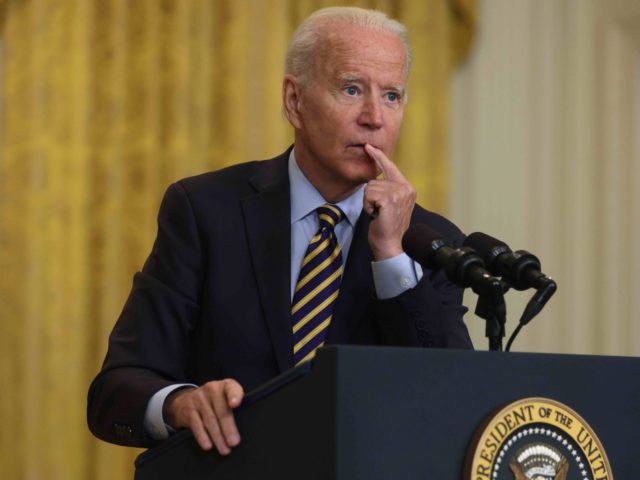President Joe Biden claimed Thursday that the U.S. was leaving Afghanistan to focus on emerging threats, like the rise of China. Has he looked at a map lately?
Afghanistan shares a land border — albeit a short one — with China, in the Hindu Kush mountains.
Before the withdrawal, the U.S. had a major base in a country that bordered China; now it will not. And China has been playing an increasing role in Afghanistan, meaning that the U.S. is withdrawing as China is advancing.
That does not mean that the U.S. must stay in Afghanistan forever. But it is folly to describe withdrawal as some kind of preparation for a tougher stance against China.
Former President Donald Trump, who had wanted to pull U.S. forces out of Afghanistan even earlier, at least had a much stronger general posture against China. Biden’s approach to China thus far has been to set up Secretary of State Tony Blinken to be lectured by Chinese diplomats about Black Lives Matter.
After Biden made his remarks, the White House Press Corps peppered him with unusually vigorous and challenging questions, far beyond the usual “what flavor of ice cream?” fare. They wanted to know how he could be sure that the country wouldn’t fall immediately to the Taliban.
They are right to be concerned. But they, too, missed the point, because they share the geographic myopia common to both parties: they focus on one country and fail to see the bigger picture.
The question is not just whether Afghanistan can function as a unified country. (The answer history suggests, as Biden correctly noted, is that it probably cannot.) The question is how withdrawal affects our other national security objectives.
In chess, the question is not whether one piece takes another, but how that move affects the overall game. And we aren’t even playing chess. We’re playing checkers, jumping from news cycle to news cycle, while China plans for checkmate.
This is not a new weakness, or a particularly Democratic one — though Biden is apparently continuing Obama’s practice of promising a “pivot” to China that never happens. Administrations from both parties share the same one-country bias.
President George W. Bush administration went into Afghanistan with a new doctrine: any country that harbored or aided terrorists who attacked the U.S. would be subject to attack. But that doctrine was also too country-specific, failing to look through a wider regional lens. The invasion of Iraq, while perhaps justified in terms of the war on terror, removed Iran’s major local rival and enabled the Iranian regime to expand its military and economic influence in the resulting vacuum.
When the Syrian regime began using chemical weapons against civilians in that country’s civil war, President Barack Obama considered military action and called for the ouster of dictator Bashar al-Assad. But he deliberately ignored the fact that the conflict in Syria was being driven by Iran, among other regional powers. And the absurd deal that Obama accepted — thanks to the then-Secretary of State John Kerry — allowed Russia to establish a stronger foothold there.
Trump was the first U.S. president in recent decades to zoom out from individual countries and take a regional view. That is why the Abraham Accords happened: he took a wider view of Israeli-Arab relations than the Israeli-Palestinian issue.
Biden restored the old, narrow thinking. So he was surprised when Houthi terrorists continued to kill civilians and attack Saudi Arabia after he pulled support for the Saudi-backed war effort in Yemen. The possibility that Iran had partly fueled the conflict to threaten U.S. naval forces across the Bab el Mandeb strait was somehow missed.
There is a case for leaving Afghanistan — and for staying. But the urgent question is: does it help us against China, or not? Biden has no idea.
Joel B. Pollak is Senior Editor-at-Large at Breitbart News and the host of Breitbart News Sunday on Sirius XM Patriot on Sunday evenings from 7 p.m. to 10 p.m. ET (4 p.m. to 7 p.m. PT). He is the author of the recent e-book, Neither Free nor Fair: The 2020 U.S. Presidential Election. His recent book, RED NOVEMBER, tells the story of the 2020 Democratic presidential primary from a conservative perspective. He is a winner of the 2018 Robert Novak Journalism Alumni Fellowship. Follow him on Twitter at @joelpollak.

COMMENTS
Please let us know if you're having issues with commenting.